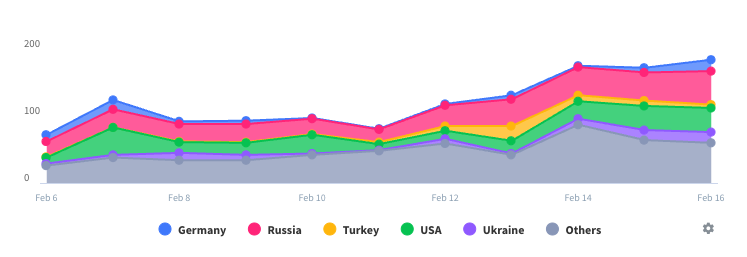Description
DBT Distress Tolerance Skills are meant to:
- Get through moments of intense emotion WITHOUT MAKING THINGS WORSE
- Sometimes you can't make things better, but you can brave the storm.
DBT Distress Tolerance Skills are NOT for:
- Making your life worth living
- Long-term changes
In DBT, we recognize that not every situation can be made better in the moment. Maybe you're having a fight with someone. Or maybe you're road raging. Whatever the situation, you may not be able to remember your DBT skills and suddenly become saint-like. You're human, and you have emotions. You might not be able to stop being angry when you're in a fight with someone, but you can at least not make things worse by saying every negative thing on your mind until you really hurt the other person.
How this app will help you:
Like all our 'Tools' apps, we'll start you off with a description of what DBT is. While DBT is a set of skills, there is also a sort of culture around it. And a way of teaching/learning it. Getting an overview of what DBT is, you can more easily see where the skills fit in, and where you can most effectively integrate them into your day-to-day.
Then we'll go over the 7 DBT Distress Tolerance skills:
• TIP
• Pros & Cons
• Distract/Soothe/Improve
• Radical Acceptance
• Willingness
• Mindfulness of Current Thoughts
• Half-Smiling
Finally, we'll start you off using the Interactive Tools:
• Suicide Prevention Hotline: While many of us come to DBT with no suicidal thoughts, some of us do. If you aren't already using this hotline as a resource, you may want to consider it. Use this tool to quickly connect to a real person when you are in moments of High Distress. Or even if you have someone else you are worried about, this can be used as well. We'll help dispel some of the stigmas and answer some of the FAQs in this tool as well.
• Fix My Temperature: Did you know that your temperature can have a huge impact on your emotions, and thus thoughts and actions? Use this tool to become more aware of what temperature settings can help trigger you, and what you can do to recognize and remedy this when it does happen.
• My Exercises: One of the fastest ways to deflate distress is through exercise. Not only does it result in your brain creating feel-good chemicals, but it often just gets you physically out of a bad situation temporarily. Use this tool to help you come up with exercises that you can do when you feel Distressed. What you do is important for your activity level.
• My DSI Activities: By going through this set of steps, you can easily go from negative to positive. Use this tool to create a list of activities that work for you in moments of Distress.
• Mental Willingness: Every notice that some days, you feel like you don't want to be doing what you're doing? And as a result, you just make a bad situation worse? By on another day, you just don't care? So suddenly a negative situation becomes neutral, or even positive? Use this tool to help you create that sense of willingness and openness created even in negative situations.
• A Week of Half Smiling: Do you know how to Half-Smile? Do you already practice it? If not, you can use this tool to give yourself challenges when it comes to Half-Smiling. Learn not only how to Half-Smile, but learn through experience how it affects you and your mood.
Many of these tools are powerful while you're first learning DBT. But they are also incredibly powerful as a refresher. Beginners and Advanced DBT practitioners will find value in this app now, and for years to come should they remember to use it.
* Note that this app can integrate with the Health App by adding 'Mindful Minutes' by completing 'Mental Willingness' entries.. This is optional and giving permission will not affect your ability to use this app.
Hide
Show More...















